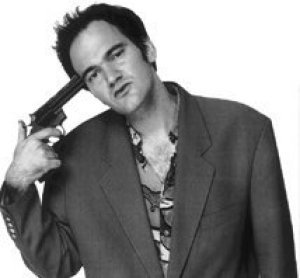1 Introduction
We use blogs all the time - to share our thoughts, to learn other people or simply to find solution on the problem we are googling around. And this isonly a tip of the iceberg as nowadays web logs are used in nearly everypossible area, for instance, politicians use blogs to promote themselves (see http://blogi-politykow.com/) and companies post "news" in the form of a blog (example: http://www.gnvpartners.com/web/category/blog/).
2 History
Digital communications was there long before first blog pop out. This part is boring and I'm sure most of us know what email or web forum is. But why blog? Well, Jorn Barger coined the term weblog and shortly after Peter Merholz used phrase we blog for the first time back in 1997. It needed only a couple of months for other users to start blogging with other bloggers on blogs.
4 Own experience
For over two years I've been working as a programmer and I was thinking about starting a blog for a couple of times. Why? Mainly in order to have access to history of ideas, workarounds and solutions for problems I had faced. Eventually, one of my friends started a blog (which is available at www.python-blog.com [6]) and grant me access to it. I still do not have enough time to write there as much as I would like, but I try my best. Oh, and I had written a blog engine for company I'm working for [7].
Occasionally I store feeds [8] to blogs I'm interested in. I'm also using Django's aggregator which provides quick access to entries from it's community blogs.
5 Questions
And how about you? Do you have your very own blog? Do you visit some blogs on a daily basis? Or maybe you are just ocasionally reading blog's entries if google redirects you into one?
| [1] | Take a look at this. You can find there many tips how to make your blogging experience better. And more time consuming. There is even a book about it and you may get one on amazon. |
|---|---|
| [2] | You may read more about the blogosphere and get some statistics about it here. It is slightly outdated piece of information, though. |
| [3] | Source: wikipedia |
| [4] | One of blog-awards site. |
| [5] | For instance google offers http://blogsearch.google.com/ and there is a global blog search engine available at http://www.blog-search.com/ |
| [6] | http://www.python-blog.com was established in 2009 by Marcin Kuzminski |
| [7] | It will be available soon within company site |
| [8] | RSS/Atom feeds are alternative ways to track whats new on a website. |









3 Social impact
Today everyone know what a blog is, many people maintain their own web log. Some of them treat this much too seriously [1] in my opinion.
On the other hand nowadays it is important to publish thoughts in proper form. What does it mean? First impression is very important so one's blog have to be nice looking - of course substantive value of the post is important too but most people browsing web need to make quick decisions on which content they would consume. One of the ways it is done is judging a book by its cover. It may not be fair but that's how reality looks like.
Even if you didn't want to read one's blog at the time you started searching for something it is quite possible that you would end up digging one or maybe even more blogs. It's simple - you wanted to read about some topic, you found someone who you share interests with, so you want to know more about him/her. By participating in blog's discussions you may find even more such people within posts' comments. So you jump to another blog. And another. It is called blogosphere - a net of blogs connected somehow. In fact, blogospheres create one of the largest community on the web [2]. In Poland we have about 2,800,000 blogs but only about 300,000 are active [3].
For many people blogs are very important which shouldn't be so surprising as, in fact, web log is kind of a diary with personal thoughts. Community has even established some ranking sites [4]. Additionally, many tools for easier searching through blogs content were made [5].